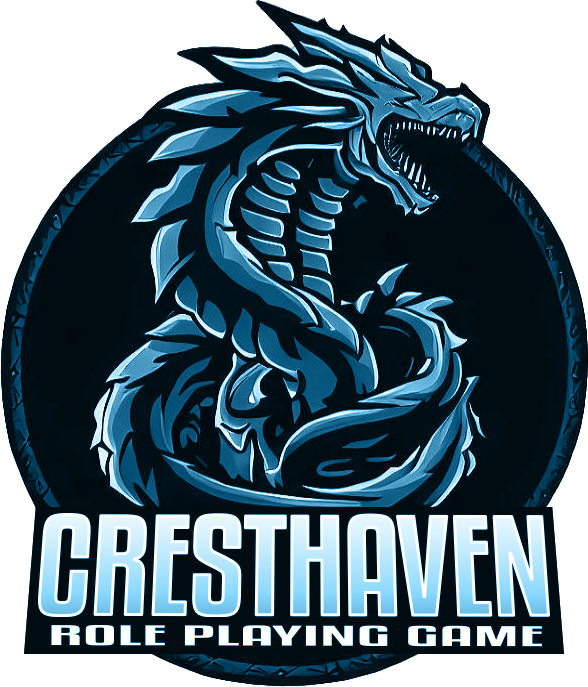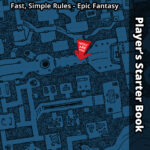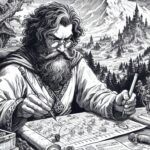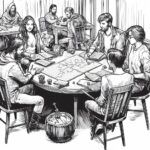Starting Money
All characters begin with a small amount of money. This may reflect a
sudden windfall, the character’s life savings, gifts from family, or any
aspect that would make sense within the game world. Starting funds should
never be shared or lent during character creation even if the characters are
family, friends, or acquaintances. All characters start with 2d4 x 10
Gold to spend in addition to their starting equipment listed on their
character class.
Money
Money is broken down into 4 types each 10x the value of the next one down. There are four types Platinum, Gold, Silver and Bronze. All coins are about equal in size and weigh 1 ounce. Gold is the most standard currency in all the worlds, and most pricing is given in gold pieces (GP).
The rate of exchange between coins is as follows:
1 Platinum = 10 gold = 100 silver = 1,000 copper
1 gold = 10 silver = 100 copper
1 silver = 10 copper
Coin Conversions
- 10 gold = 1 platinum
- 10 silver = 1 gold
- 10 copper = 1 silver
Gems and Jewelry
To find the value of a piece of jewelry, roll 3d6 and multiply the total by 100 (for a total of 300-1800 gp). Jewelry can be damaged by such things as very hot fire, lightning bolts, crushing, and other rough treatment. Damaged jewelry is only worth 50% normal value. 140 carats of gems = 1 pound
Treasure Weight
A single coin of any type weighs one ounce. So there are 16 coins in 1 pound.
140 carats of gems = 1 pound. A typical gem of 100 gp should weigh about 1/10 lb
The density of gold is about 20. A smallish chest (interior 10 inch by 5 inch by 5 inch) at 50% packing density comes to about 100 lbs of gold. A large chest (30 inches by 20 inches by 20 inches interior) comes to about 2.5 tonnes of gold.
Selling Treasure
Opportunities abound to find treasure, equipment, weapons, armor, and more in the dungeons you explore. Normally, you can sell your treasures and trinkets when you return to a town or other settlement, provided that you can find buyers and merchants interested in your loot.
Arms, Armor, and Other Equipment. As a general rule, undamaged weapons, armor, and other equipment fetch half their cost when sold in a market. Weapons and armor used by monsters are rarely in good enough condition to sell.
Magic Items. Selling magic items is problematic. Finding someone to buy a potion or a scroll isn’t too hard, but other items are out of the realm of most but the wealthiest nobles. Likewise, aside from a few common magic items, you won’t normally come across magic items or spells to purchase. The value of magic is far beyond simple gold and should always be treated as such.
Gems, Jewelry, and Art Objects. These items retain their full value in the marketplace, and you can either trade them in for coin or use them as currency for other transactions. For exceptionally valuable treasures, the GM might require you to find a buyer in a large town or larger community first.
Trade Goods. On the borderlands, many people conduct transactions through barter. Like gems and art objects, trade goods—bars of iron, bags of salt, livestock, and so on—retain their full value in the market and can be used as currency.
Money Changer. The Money Changer offers the useful service of converting coins from one type to another (and sometimes into gems!). They are a common fixture in most settlements and typically change a fee of 3% – 5% of the amount being changed.
Loans. Exploring ruins can be a costly endeavor. Financial backers can exist in larger towns. Loans are dependent on collateral and the reputation of the group or individual character. Charisma can also come into play. Loans typically must be repaid with a 10% – 50% interest rate.
This Post Has 4 Comments
Leave a Reply
You must be logged in to post a comment.







sorry newbie here what does 2d4 x 10 Gold mean?
This is dice code. Check out the article, Playing the Game. /playing-the-game/
You could give some guidance as a standard. By saying for instance, platinum is very rare, consider using gold or silver as the standard for your world.
Good call. I’ve updated the text.